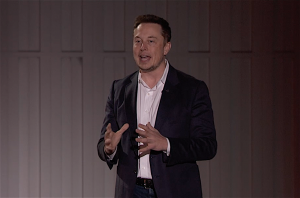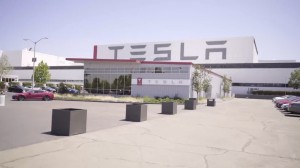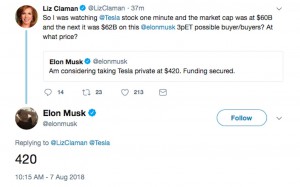
Tesla's Elon Musk appears to have the support of the board of directors for his privatization plans.
Just a day after telling Tesla employees, and later the world via Twitter, that he wants to take the EV maker private, CEO Elon Musk appears to be getting support from his board of directors.
Six board members issued a statemen saying they were considering his proposal and that they’d met with him previously to explore the strategy, including “discussion as to how being private could better serve Tesla’s long-term interests.”
Two other the board members, Kimball Musk, Elon’s brother, and Steve Jurvetson, a venture capitalist, were not part of the statement. Members of the board who signed the statement were Brad Buss, Robyn Denholm, Ira Ehrenpreis, Antonio Gracias, Linda Johnson Rice and James Murdoch.
Musk’s plan would be to take the company private at $420 a share. Ideally, he said, everyone would come along for the ride and retain their ownership stake; however, for those who don’t want to, the price is a 20% over the share price on the day it reported its second quarter earnings.
(Tesla CEO Musk lays out plans to take EV maker private. Click Here for the story.)
He said he has secured the funding necessary to put the plan in action, now all that is required is the approval of the board and the shareholders. Getting sign off from the board shouldn’t be too difficult, Mike Ramsey, an automotive analyst for Gartner, told USA Today.
“In essence this board has been in lockstep with Elon for a long time,” Ramsey said in an email. “While there are a few ‘independent’ directors, many are long-time, close friends and early investors. I don’t anticipate that the board will push back against his wishes.”
The move would keep the company immune to the dramatic swings of the stock market, allowing employees and management to focus on executing on the tasks at hand. He noted that occasionally publicly held companies must make decisions that are beneficial in the short term, but harm its long-term goals. It also eliminates the outside voices that can negatively impact the company.
“Finally, as the most shorted stock in the history of the stock market, being public means that there are large numbers of people who have the incentive to attack the company,” Must wrote in an email to employees.
(Click Here for details about Musk’s plans to take the company private.)
Though Musk claims he has secure the funding necessary to take the company private, it’s not certain what that amount really is. At $420 a share, the company is worth $70 billion. However, there is no way to really know how many shareholders will want to cash out, and this has the analysts following the company scrambling to make sense of it all.
“Frankly, we’re as confused as anyone else,” analysts at Bernstein said in a note, which included several questions about how it would be done. The Bernstein analysts said they got confirmation from Tesla’s investor relations that Musk’s talk about financing was correct, according to MarketWatch.com.
Evercore ISI developed a potential plan for how going private would shake out, and it features a significant rate of ownership defection and how the funding would be raised. They said a “possible scenario” sees as many as 60% of existing shareholders, including Musk’s 20% share, remain with the private entity.
Tesla would then need to raise equity capital of $31 billion to $39 billion to buy out those existing public shareholders who tender. Evercore ISI analysts suggested the more likely route to that $31 billion to $39 billion would be a combination of a strategic investor, two to three private investment firms or sovereign-wealth funds, and “certain larger members of the existing shareholder base or some form of fund for smaller accredited investors making up the delta,” they said.
(To see more about Tesla’s Q2 losses doubling, but profits promised in Q3, Click Here.)
Evercore ISI also pointed out one more advantage to going private — it could provide Tesla with deeper pockets to grow internationally at a faster rate, and security through the next U.S./capital markets recession where public funding would dry up, they said.


